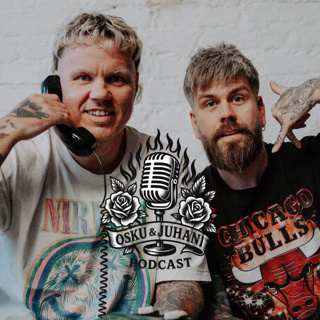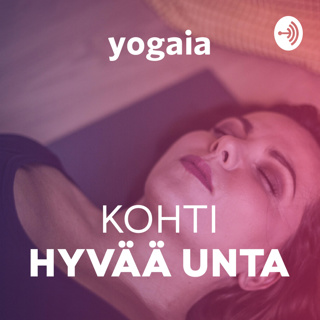
Magnesium L-Threonate is the Form of Mg for Memory, Concentration & Focus
Magnesium comes in many different forms. Today, I want to cover magnesium threonate or magnesium L-threonate. This is a specific type of magnesium. Threonate transports magnesium across the blood-brain barrier to the hippocampus. The hippocampus is involved in memory, learning, focus, and concentration. People typically take magnesium L-threonate when they want to support the brain. A magnesium deficiency can lead to various issues related to the brain and throughout the body. Benefits of magnesium L-threonate: • It may help reduce worry and anxiety (especially when trying to sleep) • It may help decrease neuroinflammation and neurodegeneration • It’s a calcium regulator and antagonist • It helps maintain and support the blood-brain barrier • It can act as an antioxidant • It helps support BDNF • It may help with androgenic alopecia If you want to use magnesium to support the brain, I would use magnesium threonate. To support other issues like cramping or fatigue or to support the heart, I would take magnesium glycinate. Magnesium citrate can be helpful as well, especially to help prevent kidney stones. DATA: https://www.ncbi.nlm.nih.gov/pmc/arti...
30 Marras 20235min

Never Take Vitamin A Supplements
Let’s talk about vitamin A—the benefits of vitamin A and the dark side. Vitamin A is a non-keratinizing vitamin. Keratinization is a condition that causes skin issues. Both a vitamin A deficiency and excess vitamin A can affect the internal and external skin in many ways. Vitamin A is involved in supporting the immune system as well. There is an association between vitamin A deficiency and autoimmune conditions like Graves’ and Hashimoto’s. Vitamin A also allows iodine to be absorbed. Signs of vitamin A deficiency: • Poor night vision • Blindness • Dry eyes • Poor immunity • Skin problems • Bone issues Signs of too much vitamin A: • Abnormal bone formation • Dry lips • Dry skin • Double vision • Alopecia • Oily skin • Peeling skin • Heart valve calcification • Hypercalcemia • Intracranial pressure Vitamin A toxicity is rare, but taking a synthetic vitamin A supplement may increase your risk. Synthetic vitamin A may also increase the risk of lung cancer. Accutane, a form of synthetic vitamin A, has serious potential side effects. I suggest getting your vitamin A from food sources or natural food-based supplements. Foods high in vitamin A (retinol): • Cod liver oil • Egg yolks • Grass-fed butter • Grass-fed cheese • Liver Beta carotene is the precursor to the active form of vitamin A (retinol). Beta carotene is in foods like carrots and spinach. But, if you’re relying on beta carotene alone to get your vitamin A or if you have a liver or gallbladder issue, you could be deficient in vitamin A.
29 Marras 20237min

The 1st Sign of a Methylcobalamin (B12) Deficiency
Let’s talk about the first sign of methylcobalamin deficiency. Methylcobalamin is vitamin B12, and it’s essential for DNA, red blood cells, and your myelin sheath. Vitamin B12 also helps support your spinal column and brain. If you’re deficient in vitamin B12, you could experience tingling, numbness, or burning sensations. Other signs of vitamin B12 deficiency can include: • Chronic pain • Depression • Muscle wasting • Blurry vision • Tinnitus • Anemia • Mouth ulcers • Sore throat • Hair loss You could also experience symptoms if you have too much vitamin B12. Vitamin B12 toxicity will typically occur if you’re taking too much synthetic vitamin B12 (cyanocobalamin)—not the natural version (methylcobalamin). Cyanocobalamin can build up in the body and cause symptoms such as: • Acne • Palpitations • Anxiety • Red cheeks • Headaches • Insomnia • Akathisia • Suicidal thoughts You could be deficient in vitamin B12 long before you start to feel any effects. But that doesn’t mean that there isn’t damage being done. One of the first symptoms you would eventually feel is extreme fatigue. Foods high in vitamin B12 are animal products. There is no vitamin B12 in plants. Top causes of vitamin B12 deficiency: • Malabsorption • Plant-based or vegan diets • Gastric bypass • Atrophy of the stomach • Gastritis • H. pylori infection • Ulcers • Inflammation in the intestines • Aspirin • Alcohol • Junk foods • Antibiotics • Antacids or PPIs • Birth control pills • Pregnancy • Lactation • Smoking • Polymorphism
28 Marras 20237min

6 Foods That Can Kill You
There are obvious foods that can kill you, like refined sugar and carbs—but that’s not what we're going to talk about today. Today, I’m going to cover six surprising foods that can kill you and a few potential natural antidotes. The top deadliest foods: 1. Pufferfish (fugu) 2. Death cap mushroom 3. Korean baby octopus 4. Green potatoes 5. Raw chicken 6. Foods containing cyanide: • The seeds or pits of apples, peaches, pears, and apricots • Bitter almonds • Cassava It’s best to avoid any of the above at all costs. If you do somehow consume death cap mushrooms, milk thistle and NAC are two potential antidotes that may help. Methylene blue is another potential antidote that has been used to help counter cyanide poisoning. DATA: https://www.britannica.com/story/7-of... https://news.ucsc.edu/2017/03/mitchel... https://www.ncbi.nlm.nih.gov/pmc/arti...
27 Marras 20238min

9 Ways Dr. Berg BLOCKS the Side Effects Of Carbs While On A Keto Diet
Sticking to keto and intermittent fasting is the best way to meet your health goals. But, if you make a mistake on keto, it’s not the end of the world. Today, I’m going to share how to block the effects of sugar and carbs, as well as other potentially problematic things. 1. Sugar • Consume fiber • Take electrolytes, B vitamins, and trace minerals 2. Grains • Consume shellfish • Take glutamine or consume foods high in glutamine • Consume B vitamins (nutritional yeast) • Take vitamin E • Consume foods high in vitamin C • Consume foods high in antioxidants • Take benfotiamine • Take alpha-lipoic acid • Exercise • Take berberine • Consume cinnamon • Consume apple cider vinegar • Consume healthy fats • Do intermittent and prolonged fasting 3. Alcohol • Consume vitamin B1 or nutritional yeast • Drink pickle juice or take electrolytes • Take milk thistle 4. Certain medications • Take milk thistle • Take CoQ10 (if you’re on a statin) • Take vitamin B1 and B12 (if you’re on metformin) • Take a probiotic (if you take an antibiotic) • Take betaine hydrochloride (if you took an antacid) 5. Excess sodium • Consume foods high in potassium 6. Oxalates • Consume cheese • Consume foods high in magnesium 7. Excess water • Consume sodium and other electrolytes 8. Keto and IF side effects • Take electrolytes • Consume B vitamins 9. Stress • Take vitamin B1, magnesium, and zinc • Exercise and physical work • Sleep
26 Marras 202318min

The 4 Causes of Air Hunger / Difficulty Breathing (Dyspnea)
Today, we’re going to talk about the best natural things to do for difficulty breathing, air hunger, or dyspnea. Traditionally, people may have heard of this symptom being caused by asthma, pneumonia, COPD, lung infection, anemia, or a heart condition. But what if you rule these conditions out and still have problems breathing? This is called pseudo-dyspnea. With pseudo-dyspnea, you may feel better with exercise and worse with rest. Top causes of pseudo-dyspnea (difficulty breathing) and natural remedies: 1. Silent reflux Natural solutions: • Chlorophyll • Wheatgrass juice powder • Betaine hydrochloride (if there isn’t irritation to the gut or esophagus) • Apple cider vinegar diluted in water and consumed through a straw (if there isn’t irritation to the gut or esophagus) 2. Alkalosis Natural solutions: • Betaine hydrochloride (if there isn’t irritation to the gut or esophagus) • Apple cider vinegar diluted in water and consumed through a straw (if there isn’t irritation to the gut or esophagus) • Healthy Keto® and intermittent fasting • TUDCA 3. Costochondritis Natural support: • Massaging and stretching the spine • Using a mobility stick 4. COVID Natural support: • Thiamine (vitamin B1) DATA: ▶️ • Shortness of Breath / Air Hunger / Si... https://www.hormonesmatter.com/recove...
25 Marras 202312min

What Would Happen if You Drank Soda for 14 Days?
Let’s talk about what happens to your body when you drink soda. In a ten-ounce soda, there are up to ten teaspoons of sugar. Instead of cane sugar, soda companies are also using high-fructose corn syrup. High-fructose corn syrup can create even more problems than cane sugar, especially for the liver. The effects of fructose on the liver are actually similar to the effects of alcohol on the liver. Fructose creates more fat than glucose, and it doesn’t satisfy. Fructose can potentially lead to non-alcoholic fatty liver disease. The high-fructose corn syrup combined with caffeine in soda may lead to issues with your blood pressure, heart, brain, bones, and kidneys. Soda is also a key contributor to childhood obesity. The sugar in soda feeds unfriendly bacteria, yeast, and fungus. It can also suppress your immune system and make you more susceptible to infections. This can lead to other issues, including increased tumor growth. It’s crucial to point out that cancer thrives on sugar. Sugary drinks also block vitamin C and deplete vitamin B1 and vitamin D. Soft drinks are associated with over 180,000 deaths worldwide. But combining soda with a fast food meal is an even deadlier situation. DATA: https://www.princeton.edu/news/2010/0... https://usrtk.org/sweeteners/beverage... https://www.hsph.harvard.edu/news/hsp... https://www.hsph.harvard.edu/nutritio... https://usrtk.org/food-related-diseas...
24 Marras 20238min

What Would Happen if You Only Got 5 Hours of Sleep Per Night - NOT GOOD!
Let’s talk about what would happen if you went two weeks with less than five hours of sleep each night. Getting seven to eight hours of sleep is the best way to support a healthy body. But many people aren’t getting enough quality sleep. There are so many health benefits of sleep. This is when our bodies recover, burn fat, and detoxify the most. Here are the top side effects of not getting enough sleep: • Fatigue • Mood changes • Poor cognitive function (with memory, focus, concentration) • Sympathetic hyperactivity • An increased risk of cardiovascular problems, stroke, and diabetes • Weight gain • Fatty liver • Immune system impairment • Poor recovery from injury, stress, or exercise If you have sleep apnea or you're a heavy snorer, you may experience an imbalance of oxygen and CO2, which can cause poor sleep. Other potential severe side effects of sleep apnea can include: • Brain atrophy • Increased risk of cancer, cardiovascular incidents, stroke, and diabetes There are many different natural things you can try for sleep apnea. Check out my other videos for more information. What to do if you’re not getting enough sleep: 1. Take a nap 2. Keep your room cool (between 60 to 68 degrees Fahrenheit) and leave your window open if possible 3. Try to keep the humidity in your room at 50% 4. Turn off all electronics in your room when you’re sleeping 5. Don’t overeat or undereat in the evening, and make sure to consume enough protein 6. Don’t eat too late in the evening 7. As it gets dark, start dimming the lights and avoiding blue light
23 Marras 202312min





















